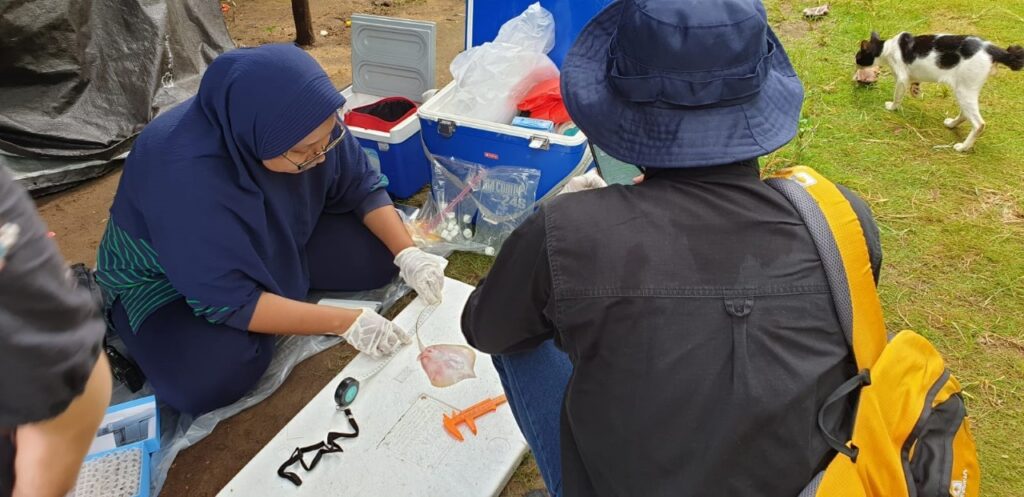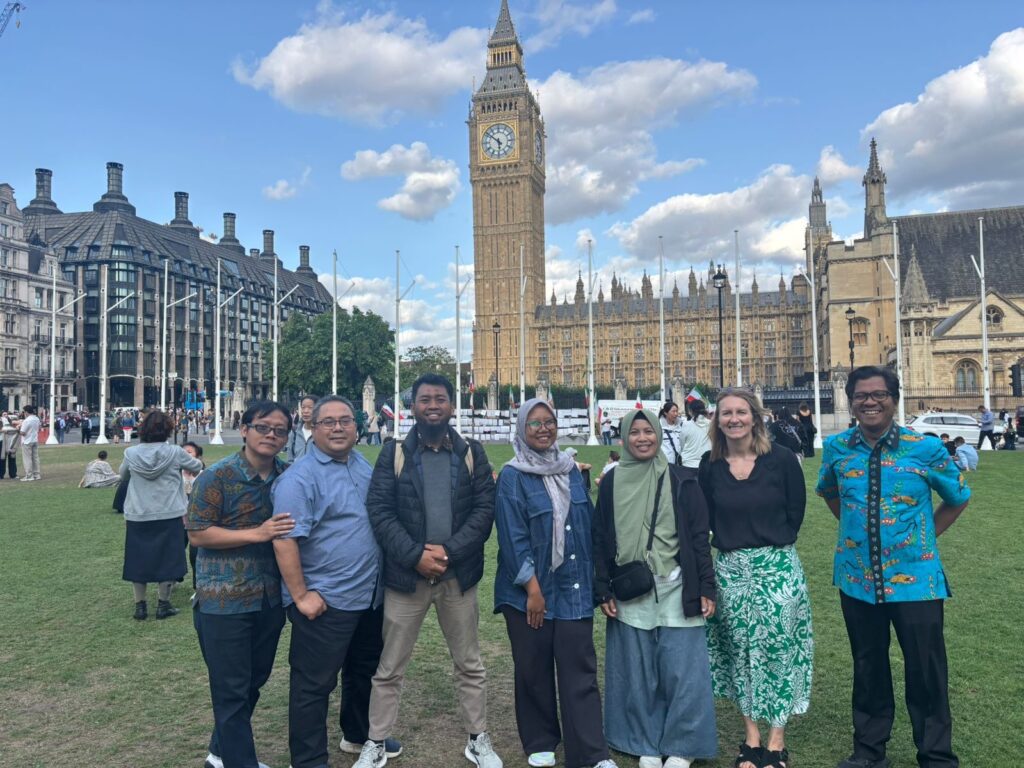Written by Efin Muttaqin, Programme Manager for the Rekam Nusantara Foundation, and Jo Murray, Marine Wildlife Trade and Bycatch Lead at Cefas.

“The greatest challenge of the 21st century is to raise a new generation that understands the importance of biodiversity and will work to preserve it.”
— E. O. Wilson, Biologist
Sharks have roamed our oceans for over 400 million years, but today many species are facing the threat of extinction. Overfishing, habitat loss, and the global trade in shark products—from fins to meat—are putting immense pressure on their populations. Indonesia, as the world’s largest shark-fishing nation and major exporter of shark products, plays a pivotal role in whether sharks can survive and thrive in the decades to come.
Yet conserving sharks is not simple. Shark fisheries in Indonesia are deeply intertwined with the livelihoods of coastal communities; sharks are caught both on purpose (target fisheries) and accidentally (non-target fisheries) and end up in complex domestic and international trade networks. On top of that, international regulations like CITES (Convention on International Trade in Endangered Species) require accurate species identification and trade monitoring to curb illegal and unsustainable practices. But it’s difficult to tell look-alike species apart and identify partially processed products. To succeed, scientists in Indonesia need to be equipped not only with strong scientific skills but also with an understanding of communities, governance, and trade.
A New PhD Programme for Shark Conservation
That’s why, with support from the Illegal Wildlife Trade Challenge Fund (IWTCF), a PhD scholarship programme has been launched to train four Indonesian students in the science and policy of shark conservation. The programme is a collaboration between our project partners (Ministry of Marine Affairs and Fisheries, REKAM, Cefas and BRIN), IPB University (Indonesia) and Liverpool John Moores University (UK). Together we will focus on four critical areas:
- Understanding the importance of shark fisheries and trade to local communities, especially for food security.
- How sharks on managed through international, national, regional and local regulations and where these do and do not align.
- What data-limited methods can be applied to assess the stock status of priority shark species
- The development of next-generation genetic tools for species identification and trade monitoring
This blend of natural and social science reflects the reality of shark conservation: it is as much about people and policy as it is about biology.
Indonesian Students Join UK Exchange
To support their training, four Indonesian shark researchers packed their bags and flew halfway across the world for an inspiring two-week research exchange in the UK.
IWTCF PhD students, Nurmila Anwar and Anhar Muslim, were joined by Selvia Octaviyani and Aris Budiarto, fellow shark researchers from IPB University. Accompanied by their Indonesian supervisor, Dr. Zairion, the group set out to strengthen their skills, expand their networks, and deepen their understanding of international shark science and conservation.

The first stop was the Cefas Laboratory in Lowestoft, where the students finally met their UK-based supervisors in person—including experts from Cefas and Prof. Laurence Kell of Imperial College London. Project leaders Effin Muttaqin (REKAM) and Dr. Joanna Murray (Cefas) shared the goals of the wider IWTCF project, while the students presented their research plans and progress. Over the week, they delved into shark stock assessment methods, fisheries data systems, and governance frameworks—essential tools for tackling shark conservation challenges in Indonesia. Feedback from the UK supervisors proved invaluable, sparking new ideas and refining approaches.
The students were also encouraged to think outside the box. They trained in gender and social inclusion (GESI), learning how to ensure that marine conservation benefits all members of society, and took part in a scientific paper writing workshop led by Cefas scientist Dr. Georg Engelhard, aimed at sharpening their skills for publishing research and developing their theses.
Next stop London, where the group visited Defra, the UK government department responsible for fisheries and environmental policy. Here, they met policy advisors working on international marine issues, from Regional Fisheries Management Organizations to CITES regulations. The students presented their own projects and learned how scientific research can directly feed into policymaking—a vital link in ensuring sharks are protected not just in theory, but in practice.
From London, the adventure continued aboard the sleeper train to Penzance in Cornwall for a close encounter with the UK fishing industry. Starting with a night-time tour of the Newlyn Fish Market as it geared up for the next morning’s auction, scientists demonstrated how they sample and measure fish—including with a high-tech electronic measuring board—and explained why this data is essential for sustainable fisheries in the UK. A particular highlight was spotting freshly landed bluefin tuna in the market – not something you see everyday!
The following morning, the students watched the online fish auction in action from the harbour office before meeting with the Cornish Fish Producer Organisation and local fishermen. The conversations were lively, with plenty of comparisons between UK and Indonesian fisheries. The UK team was astonished to learn that Indonesia has a fleet of around 800,000 fishing vessels and hundreds of landing sites—a scale almost unimaginable in British waters.
For Nurmila, Anhar, Selvia, and Aris, the trip was an opportunity to see new perspectives, gain practical experience, and build relationships that will shape their future as shark scientists. We can’t wait to see how the PhD students work develops.